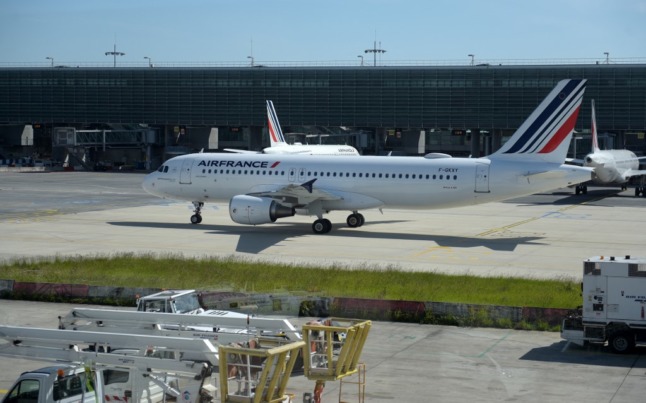The traffic light system came into effect on June 9th, and you can read about how it works for red and green countries HERE.
All EU and Schengen zone countries are green, but if you are travelling from a host of countries including the UK, USA and Canada which are on the orange list then your vaccination status is key.
MAP: Which countries are on France’s green list for travel?
This also affects people in France who wish to leave and travel to an orange list country.
To qualify as fully vaccinated, travellers must:
- Have received a vaccine that is approved by the European Medicines Agency – Pfizer, Moderna, AstraZeneca or Johnson & Johnson (known as Janssen in France)
- Be at least two weeks after the second injection for double-dose vaccines or for two weeks after a single dose for those people who had previously had Covid-19
- Be at least four weeks after the injection for people who had the single dose Johnson & Johnson vaccine
READ ALSO What proof do vaccinated travellers need to show at the French border?
Fully vaccinated and travelling into France
If you are fully vaccinated you can come to France for any reason, including tourism, family visits and visits to second homes.
Passengers need:
- Proof of their vaccination
- A negative Covid test. This can be a PCR test taken within 72 hours or an antigen test taken within 48 hours. Travellers under 11 are exempt from the test requirement
READ ALSO Can families with unvaccinated children travel to France?
- A declaration that they are free from Covid symptoms and will abide by the relevant rules. You can find the declaration HERE
Not vaccinated and travelling into France
If you are not vaccinated or have only had one dose, you can only travel to France from an orange listed country for essential reasons.
This covers foreign nationals who live here returning home, or people who live in other EU countries travelling through, but does not allow travel for tourism, family visits or visits to second homes.
You can find the full list of accepted reasons HERE.
The exception to this is unvaccinated children who are travelling with vaccinated parent or guardians.
If you fall into one of the ‘vital reasons’ categories, you will need
- A negative Covid test. This can be a PCR test taken within the previous 72 hours or an antigen test taken within the previous 48 hours
- An attestation d’entrée sur le territoire métropolitain or form detailing your vital reasons for travel, with supporting documents if necessary
- A declaration that you are free from Covid symptoms and will abide by a seven-day quarantine on arrival in France followed by an antigen test. You can find both of the necessary forms HERE.
Vaccinated and travelling from France to an orange list country
French rules do not require anything specific other than proof of vaccination to leave France, but you will be likely to need a negative Covid test to enter most countries.
READ ALSO How to get a Covid test in France
You may also need to quarantine on arrival, so check the rules of the country you are travelling to.
Not vaccinated and travelling from France to an orange list country
As well as following your destination country’s rules on testing and quarantine, if you are not vaccinated you will also need a vital reason to leave France.
Counted as vital reasons are returning to your country of residence or country of origin.
So, for example, British passport holders can travel to the UK, Americans to the USA etc but this does not guarantee your right to return to France unless you fit one of the criteria (such as being a resident).
However there is no provision for a French partner on the rules. So if, for example, a Brit with a French wife wanted to travel to the UK, the wife might not be able to travel with them if she was not vaccinated and did not fit any of the criteria.
You also need to fill out an attestation stating your reasons for travel, which also gives a full list of accepted reasons. You can find the attestation HERE.
Checks
From people who have travelled under the new rules we’re receiving quite mixed reports of how many of these documents are actually checked, but our advice would be to have them all ready at the border just in case.



 Please whitelist us to continue reading.
Please whitelist us to continue reading.
Only fully vaccinated people are allowed to leave france to orange list countries? The vaccination for general public started on may 27th. And how do you expect them to be fully vaccinated by june 9th. That means only those lucky to get the first shot on the first day will be able to travel earliest by june 28th.
What’s the situation with regards flying into Geneva and driving into France? Switzerland is closed to uk tourists but the FOPH told me by phone that you can transit to France via Geneva airport, however British Airways aren’t letting people from the UK board flights to Geneva.
This is very helpful, many thanks.